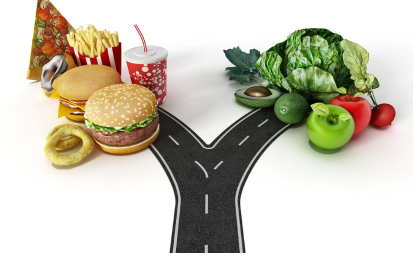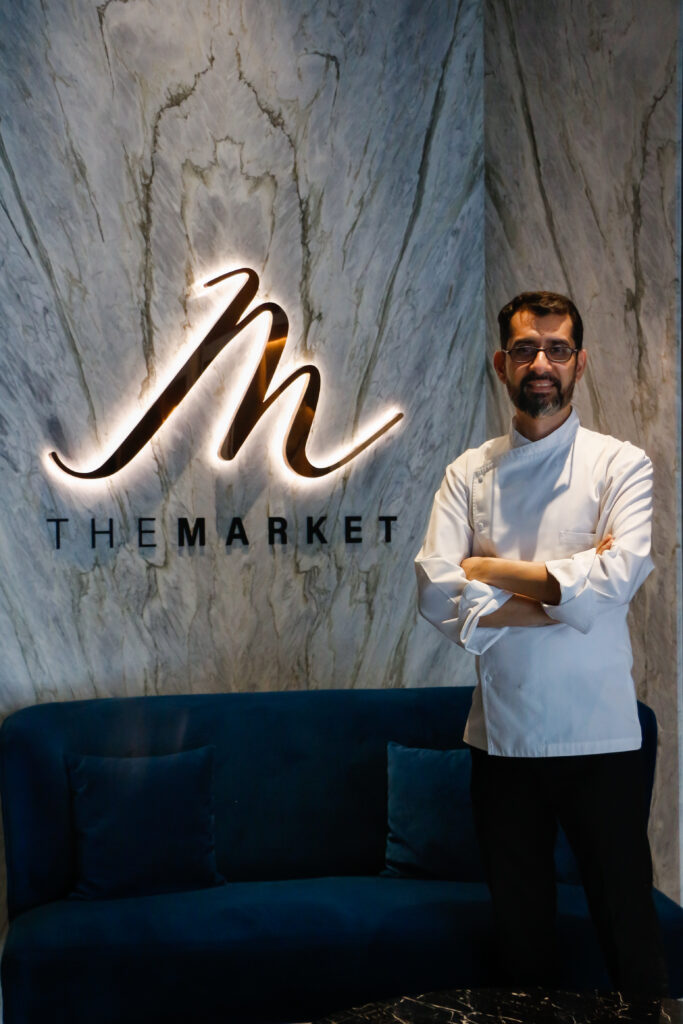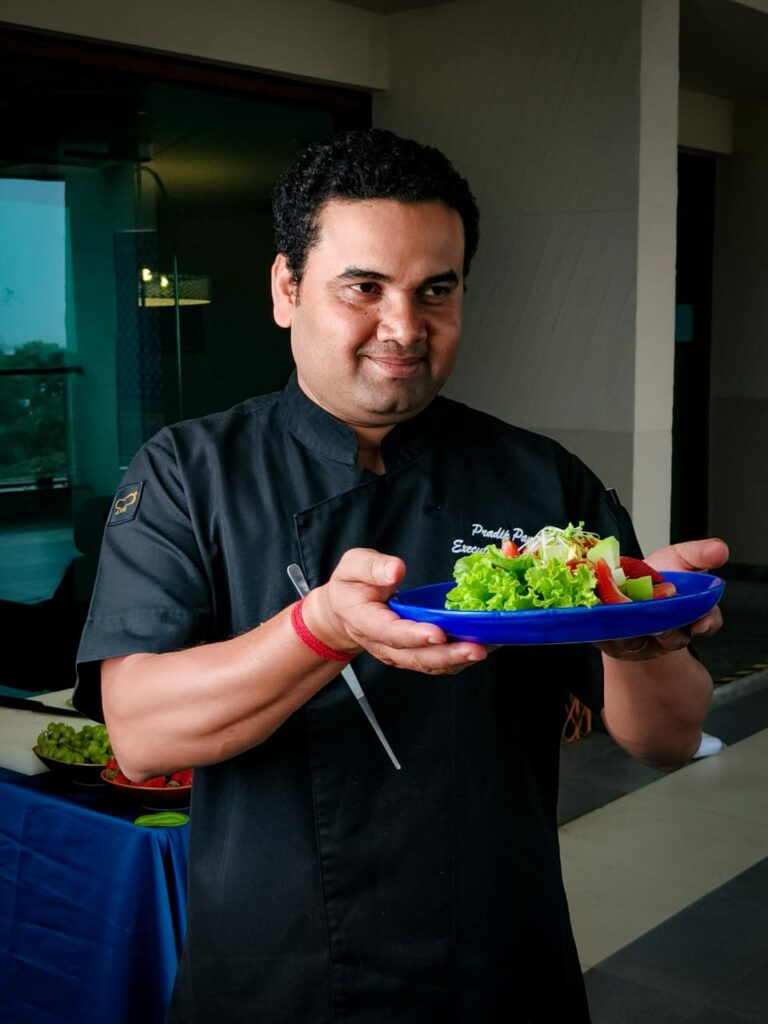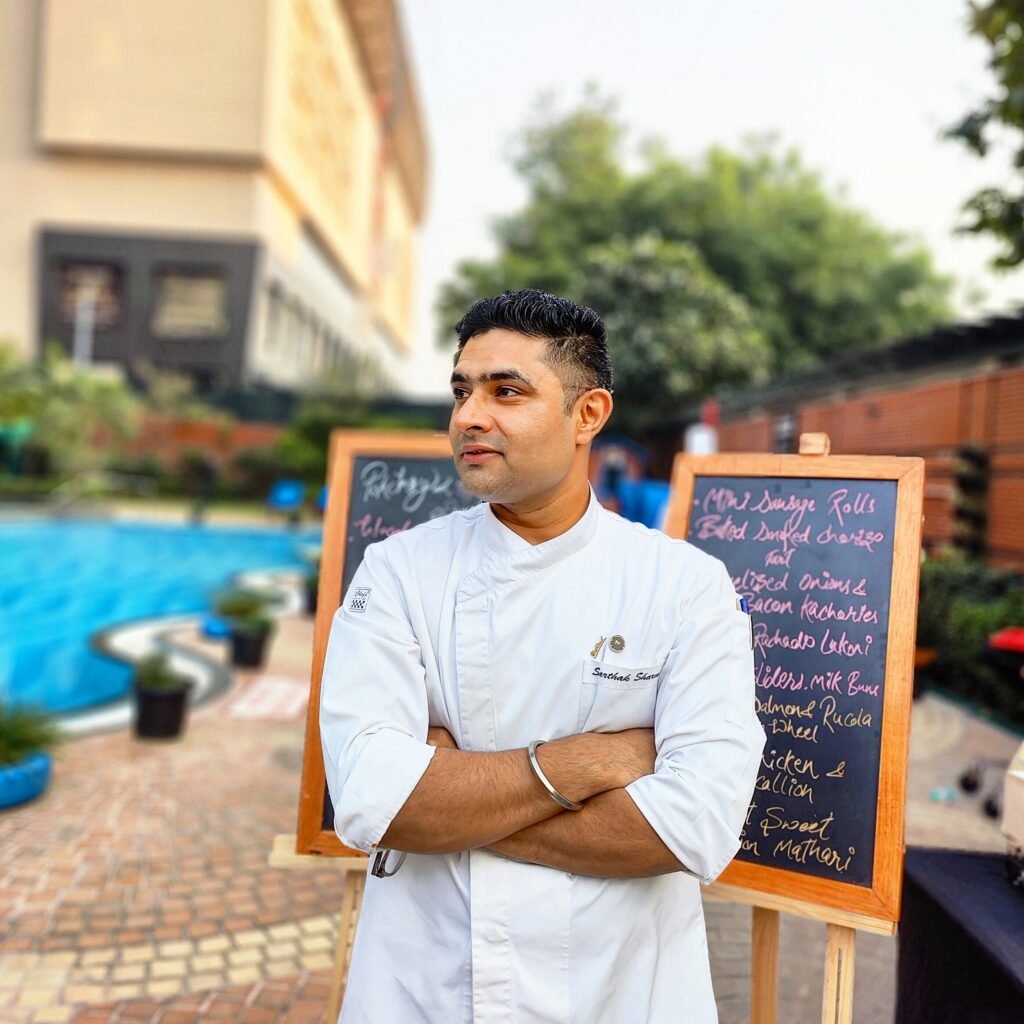Industry Experts Opinion on World Food Safety Day
Theme for this year is "Food Standards Save Lives". Let's see what are views on the theme from different industry experts and chef's. Jaidev Dutta General Manager, Holiday Inn Bengaluru Racecourse Food standards play a crucial role

Theme for this year is “Food Standards Save Lives”. Let’s see what are views on the theme from different industry experts and chef’s.
Jaidev Dutta
General Manager, Holiday Inn Bengaluru Racecourse
Food standards play a crucial role in ensuring the safety and well-being of individuals consuming food in hotels. Adhering to strict food safety regulations and implementing proper hygiene practices can help prevent foodborne illnesses and protect the health of guests.
Here are some key food standards that hotels typically follow:
- Food handling and storage: Hotels must maintain proper procedures for receiving, storing, handling, and preparing food. This includes maintaining appropriate storage temperatures, preventing cross-contamination, and ensuring proper labeling and rotation of perishable items.
- Hygiene and sanitation: Hotels are required to maintain high standards of cleanliness and hygiene in their food preparation areas. This involves regular cleaning and sanitization of equipment, utensils, and food contact surfaces. Staff members are trained on personal hygiene practices, such as handwashing, wearing clean uniforms and covering hair.
- Ingredient sourcing: Hotels should prioritize sourcing food ingredients from reputable and reliable suppliers. Ensuring the quality and safety of ingredients is crucial in maintaining food standards. Regular inspections and audits of suppliers can help verify their adherence to safety standards.
- Allergen management: Hotels needs to be vigilant about allergen management to protect guests with food allergies. This includes accurate labeling of allergenic ingredients, training staff on allergen awareness and taking necessary precautions to prevent cross-contamination.
- HACCP (Hazard Analysis and Critical Controls Points): Implementing a HACCP system is essential in identifying and controlling potential hazards in food preparation. This systematic approach helps hotels identify critical control points, establish monitoring procedures, and implement corrective actions to ensure food safety.
- Regular Inspections and audits: Hotels are subject to inspections by local health authorities to ensure compliance with food safety regulations. These inspections evaluate various aspects of food handling, hygiene, sanitation, and overall facility cleanliness. Additionally, some hotels may undergo voluntary audits by independent organizations to demonstrate their commitment to food safety.
- Training and certification: Staff members involved in food preparation and handling should receive appropriate training on food safety practices. Obtaining certifications, such as ServSafe or local equivalent can demonstrate their knowledge and competence in maintaining food standards.
By adhering to these food standards, hotels can minimize the risk of foodborne illnesses, protect the health of their guests, and maintain a positive reputation for their establishments.


Chef Prakash Chettiyar,
Director of Culinary, JW Marriott Kolkata
1. Concept of Food Safety and its relevance in India?
Answer- Food safety is a crucial aspect of ensuring good health, as it encompasses the proper practices followed during the preparation, handling, and storage of food to prevent the occurrence of foodborne illnesses and injuries. It is essential to maintain the safety of food from the initial stages of production on the farm to its consumption at the table. This involves adhering to a set of five fundamental concepts:
1. Maintain cleanliness: This involves ensuring hygiene measures are in place to prevent contamination of food during its production and handling.
2. Separate raw and cooked food: It is important to keep raw and cooked food separate to avoid cross-contamination and the transfer of harmful bacteria.
3. Cook food thoroughly: Proper cooking of food is necessary to eliminate any potential pathogens that may be present and ensure its safety for consumption.
4. Store food at safe temperatures: Proper storage of food at appropriate temperatures prevents the growth of bacteria and other microorganisms that can cause foodborne illnesses.
5. Use safe water and raw materials: The quality of water and raw materials used in food production is crucial. It is important to ensure that these inputs are safe and free from contaminants.
Food safety is particularly relevant in India due to the high prevalence of malnutrition cases, with approximately 50% attributed to factors other than lack of food or poor diet. Poor water and sanitation facilities, as well as unhygienic practices, contribute to life-threatening diseases such as diarrhea. By implementing and adhering to proper food safety practices, the risks associated with such diseases can be mitigated, leading to improved public health outcomes.
2. Theme for the year
Answer. Ensuring food safety is a collective responsibility for all individuals. – “Food Safety is everyone’s business” means that ensuring the safety of the food we consume is a collective responsibility that involves various stakeholders, including producers, processors, distributors, retailers, regulators, and consumers. It emphasizes the notion that every individual involved in the food supply chain and every consumer has a role to play in maintaining food safety.
3. Practical Implementation of Food Safety
Answer: Implementation of food safety measures in India can be achieved by adhering to the guidelines provided by the Food Safety and Standards Authority of India (FSSAI). These guidelines include essential
sanitation practices and standards that need to be followed. It is crucial to raise awareness and provide training on food safety, particularly for small food business operators.
The awareness and importance of food safety have increased in general life, especially in the post-pandemic era. There is a growing emphasis on supporting local markets, promoting locally sourced ingredients, and providing training to indigenous vendors. These initiatives aim to ensure that food safety practices are integrated into local food systems, benefiting both consumers and vendors. By combining regulatory guidelines, awareness campaigns, and education, we can enhance food safety measures in India and create a safer food environment for all.
4. Challenges Faced
1. Evolving food production and supply: With the increase in imported food and changes in production methods, it becomes more challenging to monitor and regulate the safety of the entire food supply chain.
2. Environmental factors: Changes in the environment, such as pollution and climate change, can contribute to food contamination, making it essential to address these issues to maintain food safety.
3. Emergence of new bacteria and toxins: New and emerging pathogens and toxins pose a continuous challenge to food safety. Additionally, the rise of antimicrobial resistance further complicates the management of foodborne illnesses.
4. Changing consumer preferences and habits: Consumer demands and behaviors constantly evolve, which necessitates adapting food safety practices to meet new requirements and address emerging risks.
5. Lack of information and clarity: In India, a significant challenge lies in the lack of accessible information and clear regulations regarding food safety, particularly for small food business operators. This hinders their ability to comply with safety standards effectively.
6. Importance of training food handlers: Even small steps like proper handwashing among food handlers are crucial for maintaining food safety. Emphasizing training and education for all individuals involved in food handling is vital.
7. Reaching rural consumers: It is essential to reach out to rural consumers through mass media campaigns to raise awareness about food safety practices, as they may have limited access to information and resources.
By addressing these challenges, implementing robust regulations, enhancing communication and education, and promoting good practices at all stages of the food supply chain, we can work towards ensuring the safety of the food we consume.
Vikram Khatri
Director of Culinary, The Westin Pune Koregaon Park
As a chef at The Westin Pune Koregaon Park, I firmly believe that food standards save lives. Our commitment to maintaining impeccable food standards is not merely about culinary excellence and exquisite flavors; it is a matter of prioritizing the health and well-being of our esteemed guests.
Food safety and hygiene are the cornerstones of our culinary philosophy. We recognize that every meal we serve carries the responsibility of nourishing and safeguarding our patrons. From sourcing the finest ingredients to implementing stringent quality control measures, we leave no stone unturned in ensuring that our food meets the highest standards.
In a world where foodborne illnesses and allergies pose significant risks, our dedication to food safety is unwavering. We meticulously adhere to industry best practices, train our staff extensively, and keep ourselves abreast of the latest advancements in food safety protocols.
At The Westin Pune Koregaon Park, we understand that behind every dish, there is a story of trust. By upholding rigorous food standards, we not only create unforgettable dining experiences but also protect the health and lives of those who grace our tables. We take pride in knowing that our unwavering commitment to food safety can truly make a difference in the lives of our cherished guests.


Savio Fernandes
Director of Food & Beverage, Four Seasons Bengaluru
At Four Seasons Hotel Bengaluru, we prioritize the well-being and satisfaction of our guests, and this includes ensuring the highest standards of food safety and hygiene. We take several proactive measures to maintain the quality and safety of the food we serve. Here are some key practices we follow:
1. Food and Environment Analysis: We conduct regular laboratory tests through a third-party service to assess the safety of our food and environment. This helps us identify any potential risks and take immediate corrective actions.
2. Banquet Function Food Samples: As part of our global Four Seasons Food Safety Policy, for banquet functions with over 100 guests, we save food samples from the event. This allows us to perform future analysis in the event of any food-related complaints, ensuring a thorough investigation and appropriate resolution.
3. Food Handlers Examination: We prioritize the health of our colleagues and protect our guests by conducting yearly food handlers’ examinations. This ensures that all individuals handling food in our premises are in good health and aware of the best practices for food safety.
4. Food Safety Training: We regularly conduct food safety trainings for all team members. These training sessions aim to enhance the knowledge and understanding of food safety protocols, enabling our staff to handle and serve food with utmost care and hygiene.
5. Vendor Audits: To maintain our high standards, we conduct regular audits of our food vendors. These audits help us ensure that the materials supplied to the hotel are processed in a hygienic environment, minimizing the risk of contamination.
6. Policies and Procedures: We have established comprehensive policies and procedures to govern the receiving, transportation, and storage of food items. These measures are in place to mitigate any potential risks of food contamination and ensure that our food remains safe and of the highest quality.
At Four Seasons Hotel Bengaluru, we are committed to providing our guests with hygienic, safe, and delicious food. Our stringent food safety practices, regular audits, and continuous training efforts reflect our dedication to upholding the highest standards in the industry. The satisfaction and well-being of our guests are our top priorities, and we will continue to strive for excellence in all aspects of our food service operations.
Girraj Sharma
Associate Director, Food & Beverage, Sayaji Indore
This year’s World Food Safety Day theme “Food Standards Save Lives” highlights the fact that food standards are essential to safeguard lives and reduce the risk of food contamination.
We monitor food, safety and sanitation by sourcing high quality ingredients from reliable vendors. We follow four basic steps at our kitchen for food safety – Clean, Separate, Cook and Chill. We also follow the food sanitation plan ie. Correct Handwashing, Cleaning and sanitizing food contact surfaces and proper storage and labelling of food and cleaning tools.


Pradip Pani
Sr. Sous chef, Grand Mercure Mysore
At Grand Mercure Mysore, food safety is a paramount concern. We recognize that the responsibility lies not only in crafting delectable cuisine but also in safeguarding the health of our guests and team members. This year’s theme, “Food Standards Save Lives,” resonates deeply with our commitment.
We follow a rigorous framework encompassing every step of the culinary journey, from sourcing ingredients to the final presentation on the plate, crafted with the guidance of the FSSAI charters and Accor’s Food safety guidelines. We believe that the quality of our dishes begins with the ingredients we choose. Our dedicated team meticulously sources fresh, locally produced ingredients, emphasizing sustainability and traceability. By establishing partnerships with trusted suppliers, we can ensure that the products we procure meet the highest food safety standards.
Maintaining impeccable hygiene and sanitation practices is a non-negotiable aspect of our operations. Our culinary team undergoes regular training sessions to stay updated on the latest food safety protocols. We adhere strictly to FSSAI principles, implementing comprehensive monitoring systems for all aspects of food handling, storage, and preparation. Our commitment to food safety extends beyond training and practices. Grand Mercure Mysore is equipped with cutting-edge kitchen facilities and advanced technologies to maintain optimal temperature control, prevent cross-contamination, and ensure safe food storage. We regularly inspect and maintain our equipment to guarantee their reliability and effectiveness.
We also understand that empowering our guests with knowledge about food safety is crucial. Our menus feature clear allergen and dietary information, enabling guests to make informed choices. We also take pride in engaging with our guests, sharing insights about our food safety measures and answering any questions or concerns they may have.
As a team we truly recognize that food standards save lives, and we remain dedicated to ensuring the well-being of our valued guests through meticulous ingredient selection, impeccable hygiene practices, state-of-the-art infrastructure, regulatory compliance, and guest education. Together, we can savor the pleasure of fine dining without compromising on safety.
Chef Rajeev Nayan,
Senior Sous Chef, THE Park Hyderabad
Food standard save lives
Food is one of the major necessities for a human being to survive. The nutrients we get from consuming food give us the energy and nourishment we use to sustain our daily activities. Foods also play a great role in the culture of society and give a certain identity to a community.
Recent data released by the World Health Organization have estimated that at least 600 million people all over the world are inflicted with food borne illnesses after consuming unsanitary food.
Food and Physiological Processes and Actions
When we deal with the food it’s from ages and we learn from AYURVEDA. Food safety is connected with life of five elements (Earth, Water, Fire, Air & Space).
Now a days in a busy lifestyle when it comes to food safety Chefs play a major role in standardizing the food safety SOP and cooking procedures with nutritional balance diet.
Chefs are getting more involved in food safety awareness programmers to be connected with the people such as doing food promotions, creating new recipes. Even more, we are seeing Chefs are involved in growing their own farms & getting in to hospitality industry by introducing new products like organic products which are very rich in natural resources, encouraging & educating people in HACCP (hazard Analysis Critical Control Point) programs.
The concept of farm-to-fork (or farm-to-table) food safety is well-known in the food industry. This concept tells us that food safety should be observed right from the beginning when raw foods are just being produced up until the finished product reaches the consumer. Standard food safety practices for growing produce have been established.


Chef Saarthak Sharma,
Chef De Cuisine Radisson Blu MBD Hotel
We follow all national (FSSAI) and international (ISO-22000;2018) standards at Radisson Blu MBD Hotel Noida to ensure the safety, quality, and integrity of the food we eat, ultimately saving lives and protecting public health. We make certain that all raw materials and ingredients used in our hotel are obtained from FSSAI-certified vendors and meet their standards. We rigorously check the temperature, labeling, and condition of the raw material. Our food safety policy is titled “Providing Safe Food to Guests,” and our food standards are intended to protect consumers from the risks associated with foodborne illnesses. These standards help prevent the spread of harmful bacteria, viruses, parasites, and toxins that can contaminate our food by establishing guidelines for food handling, processing, storage, and distribution. We calculated the nutritional value of each food item on our menu and provided the calorific value of all food items on our menu at the Radisson Blu MBD hotel. Such FSSAI-mandated practices ensure accurate information about the nutritional content of products purchased/consumed by consumers. To provide accurate information about allergens in each food item on our menu, we have specified eight allergens in accordance with FSSAI standards and provide regular allergen training to our team members.
Chef Sarvananand Chidambaram
Regional Chef, The Vitskamats group
Coming from a traditional South Indian household, renowned chef Sarvananad Chidambaram began his journey in the hospitality industry working in many esteemed brands and familiarising an array of cuisines. Mastering the culinary arts, he is now the Regional Chef of the prestigious The Vitskamats Group looking over the iconic Kamats Restaurants, VITS Hotels and Resorts and their premium diner-Kamats Legacy. Chef Sarvananad is not only known for his exquisite dishes in various styles of cuisine but also for his unwavering commitment to food standards and safety.
As a Chef he prioritizes food safety to be of paramount importance because he believes a single mistake in the kitchen can have devastating consequences on diners that trust the restaurant blindly for a meal with their loved ones. His passion for maintaining the highest standards has been deeply ingrained in him from a young age when he witnessed the effects of foodborne illnesses in his own family. Determined to make a difference, he vowed to protect the lives of others by ensuring the utmost quality and safety in every dish he prepares.
Heading The Vitskamats Group, Chef Sarvananad is a revered figure, admired for his expertise and adherence to food standards which is the main mantra of the iconic brand that has been focussing on -Hot, Healthy, and Fresh for 8 decades. He meticulously inspects every ingredient that enters his kitchen, ensuring they are fresh, of the highest quality, and sourced from trusted suppliers. Along with this, he also trains his staff extensively on proper hygiene practices, food handling techniques, and the prevention of cross-contamination. Each member of his team wears gloves, hairnets, and clean uniforms to maintain a hygienic environment in his kitchens.
As a regional chef, he travels to various Vitskamats Group establishments, ensuring that his high standards are consistently met at every outlet. He conducts regular inspections, providing valuable guidance to the kitchen staff and collaborating with managers to improve safety procedures.
Under Chef Sarvananad and many such dedicated chefs; following the guidelines of the food safety department, The Vitskamats Group today is a champion of food safety practices. They maintain regular inspections, enforce strict quality control measures, and invest in advanced technology to monitor hygiene standards. The employees receive comprehensive training, and the company continues to strive to live up to its image with its food safety and hygiene standards.

 English
English French
French German
German Italian
Italian



